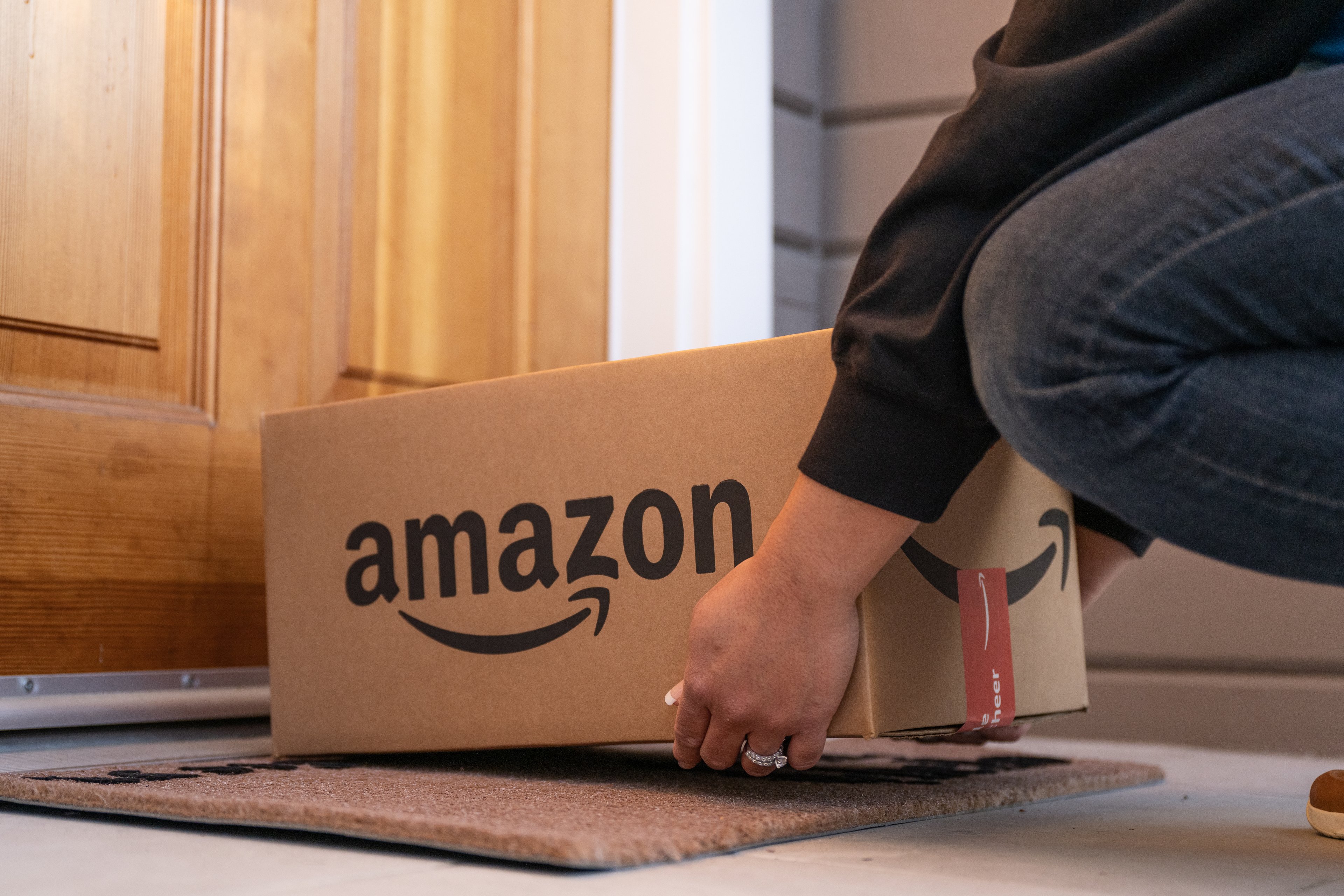Amazon.com (AMZN 1.02%) has been one of the greatest all-time growth stories in the stock market. Since going public in 1997, Amazon's stock price has climbed about 66,700%, and founder Jeff Bezos is on the verge of becoming the world's richest person. With that in mind, here's what three other well-known billionaire investors – Warren Buffett, Mark Cuban, and Stanley Druckenmiller -- have to say about Amazon's success, and where it could be heading.
Here's why Warren Buffett hasn't bought Amazon's stock
At Berkshire Hathaway's most recent annual meeting, Buffett said he missed an opportunity to buy Amazon. And in an interview just after the meeting, when Buffett was asked why he hasn't invested in Amazon, he had a one-word answer: "stupidity."

Image source: The Motley Fool.
Buffett also made comments that suggest he simply didn't have a good grasp on how to value the company. While talking about Alphabet and Amazon, Buffett said "it's a little hard when you look at something at 'X' and it sells at 10X to buy it."
Buffett says that while he never expected the scale Amazon has achieved, he was impressed with Bezos early on, and that "at the same time he's shaking up the whole retail world, he's also shaking up the IT world simultaneously."
"These are powerful, powerful ideas with big potential, and he's executed," said Buffett. The latter part, Bezos' execution of Amazon's strategy, is what Buffett underestimated, and it's what cost him and Berkshire shareholders a big potential win.
The ultimate start-up
Billionaire investor, Shark Tank star, and Dallas Mavericks owner Mark Cuban believes that Amazon is so much more than a retail company. In a CNBC interview in May, Cuban referred to the "ultimate start-up" and said that Amazon, along with the rest of the "FANG" stocks, is still undervalued. In fact, Cuban revealed that, at the time of the interview, Amazon was his largest position.
Cuban said Amazon has tremendous opportunity to develop, particularly when it comes to pre-emptive selling"
When Amazon talks about opening grocery stores, it's not because they want to sell groceries in stores. It's the same with bookstores. It's because they want to know what you need, when you need it, before you know you need it, so they can deliver it right to your door in anticipation. The way they are using new technologies is not just disrupting retail; it's getting ready to disrupt everything.
Just recently, Cuban praised Amazon's pending acquisition of Whole Foods, tweeting the following:
The Amazon question. Can they get your groceries to you faster than you can get to the store to shop in an Uber/Lyft world? Yes.
In other words, Cuban suggests that Amazon could make it faster for shoppers to sit at home and order groceries than it would be to shop themselves.
Amazon's efficiency is one of its biggest advantages
Billionaire investor Stanley Druckenmiller recently said that Amazon's unheard-of efficiency has allowed it to so effectively disrupt U.S. retail.
Druckenmiller said retail chains are lucky to boost sales by $1 for every $1 they spend, while Amazon receives nearly $4 in sales for every $1.
In a 2015 interview, shortly after Druckenmiller invested in Amazon, he said he loves Amazon's long-term focus, pointing out that the company had missed quarterly earnings nine times in the previous 19 quarters, and that the company simply doesn't care. "I love Amazon ... because they're investing in their future," Druckenmiller said. He referred to Bezos as a "serial monopolist."
In fact, around the same time, Druckenmiller warned Buffett about his IBM investment, which he has since reduced, specifically because of Amazon Web Services' threat to IBM's business.






